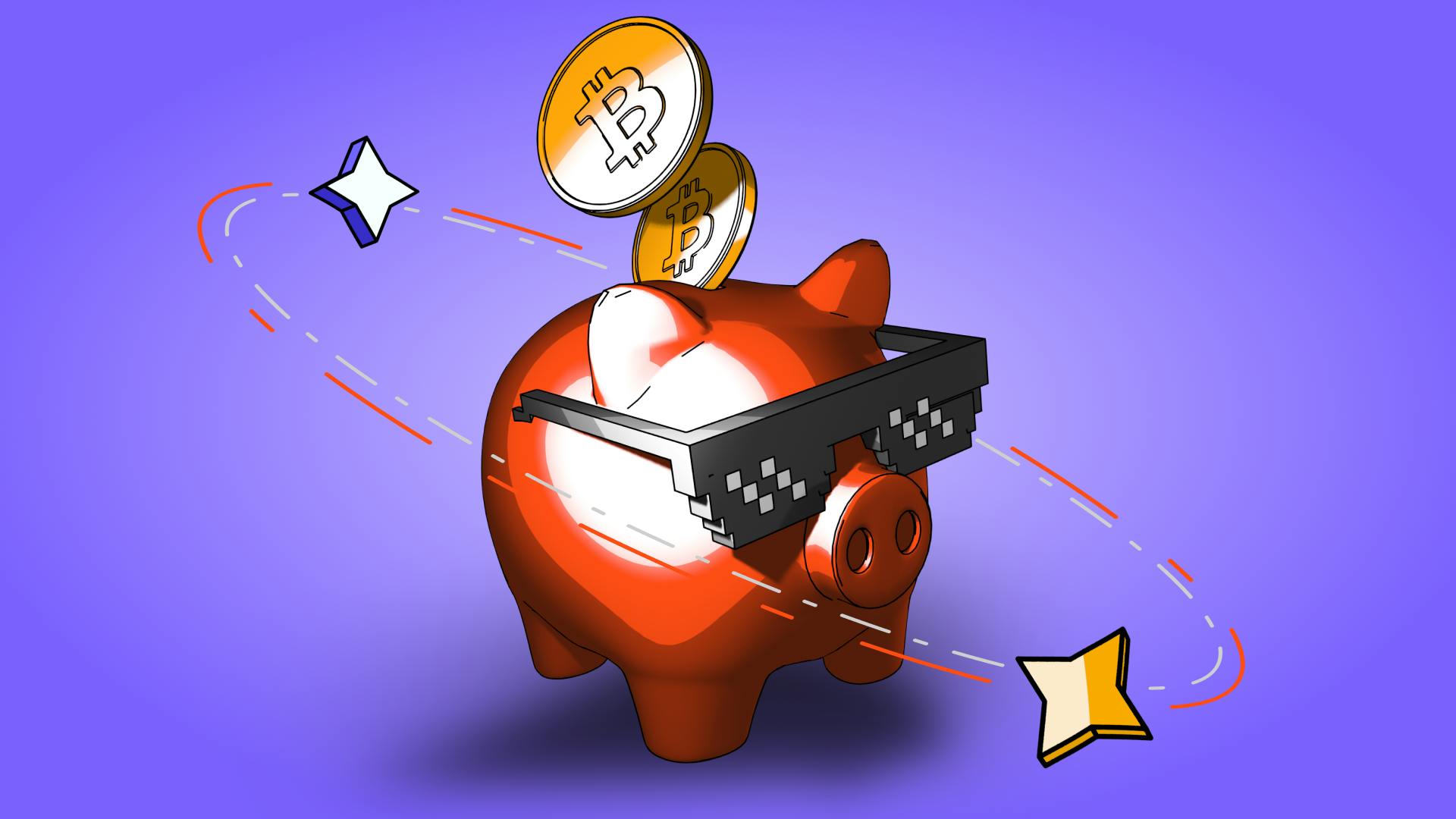Bitcoin Spot ETF Approval - All You Need To Know
December 5, 2025

by Kamil S
December 5, 2025
The recent approval of the first Bitcoin Spot Exchange-Traded Funds (ETFs) by the U.S. Securities and Exchange Commission (SEC) marks a significant milestone for both the cryptocurrency and financial worlds. This decision comes after a decade-long uphill battle and several denials in the past, and is widely regarded as a potential watershed moment for the crypto industry. The approval enables easier access for institutional investors and consumers to invest in Bitcoin, the largest digital asset by market capitalization.
The SEC has approved applications from 11 spot Bitcoin ETF issuers, including major names like BlackRock’s iShares Bitcoin Trust, Grayscale Bitcoin Trust, and ARK 21Shares Bitcoin ETF. These ETFs are already listed on prominent exchanges such as the Chicago Board Options Exchange (CBOE), the New York Stock Exchange (NYSE), and Nasdaq. This makes it accessible for a broad range of investors to gain exposure to Bitcoin without having to deal with wallets and exchanges. However, this means investors will not actually own and hold the respective Bitcoin.
The approval of Bitcoin Spot ETFs is expected to dramatically expand access to Bitcoin investing for millions of investors. These investors can now gain Bitcoin exposure through their regular brokerage accounts, a significant shift from the earlier scenario where only futures-based ETFs linked to Bitcoin and Ethereum were available.
In other words, Bitcoin has crossed the event horizon. The premier digital asset has come a long way and its journey has been riddled with numerous challenges and milestones. From its inception as an obscure digital currency debated over by geeks on internet forums, to its current status as a recognized financial asset, Bitcoin has faced skepticism, regulatory hurdles, and volatility. Despite these challenges, its resilience and growing acceptance have led to significant developments, such as the recent approval of Bitcoin Spot ETFs. Most importantly, BTC has kept going up in the long run.
With approximately 19.5 million Bitcoins already in circulation and a capped total supply of 21 million, only about 1.5 million Bitcoins are left to be mined until 2140. This scarcity factor is pushing BTC into a real deflationary curve unlike any other asset we’ve seen.
Read on to understand Bitcoin’s journey so far, the vast implications of the spot ETF approval, and what lies ahead.
A Bitcoin Spot ETF (Exchange-Traded Fund) is designed to track the price of Bitcoin itself. Unlike futures ETFs, a spot ETF would directly hold Bitcoin as its underlying asset, making the value of the ETF shares closely tied to Bitcoin's price movements. This setup allows investors to gain exposure to Bitcoin without directly purchasing or storing the cryptocurrency, making it an accessible option for traditional investors.
The key difference between Bitcoin Spot ETFs and Bitcoin Futures ETFs lies in their underlying assets and investment approach. While Spot ETFs hold actual Bitcoin, providing direct exposure to its price movements, Bitcoin Futures ETFs invest in futures contracts. These contracts are agreements to buy or sell Bitcoin at a predetermined price on a future date, which means they speculate on Bitcoin's future price movements rather than its current market value.
The complexity of investment is another difference. Spot ETFs offer a simpler and more direct investment experience, closely mirroring Bitcoin’s price movements. On the other hand, futures-based ETFs can be more complex, with potential tracking errors and basis risks (the difference between the futures price and the spot price of Bitcoin).
The regulatory environment for Bitcoin ETFs is evolving. While the U.S. Securities and Exchange Commission (SEC) has approved Bitcoin futures ETFs, the approval of Spot ETFs has been more challenging due to concerns around market manipulation and the nascent nature of the crypto industry. However, the approval of Bitcoin Spot ETFs could signal increasing regulatory comfort with Bitcoin and potentially pave the way for more mainstream adoption. There is broad consensus that Ethereum Spot ETF could potentially be next in line and with that, other crypto assets as well.
Investing in a Spot Bitcoin ETF offers several benefits:
Direct Exposure: They provide direct exposure to Bitcoin's price movements.
Ease of Investment: These ETFs are accessible on conventional stock exchanges, simplifying the investment process for those familiar with traditional stocks.
Regulatory Framework: They bring Bitcoin into a regulated environment, adding a layer of trust.
However, there are risks as well:
Price Volatility: The value of a Bitcoin Spot ETF is subject to Bitcoin’s price fluctuations.
Tracking Inefficiencies: The ETF may not always perfectly match Bitcoin's performance due to various factors like added fees.
The introduction of Bitcoin Spot ETFs is expected to have a significant impact on the market by providing easier access and potentially attracting more institutional investors. This could lead to increased liquidity and stability in Bitcoin prices, although the inherent volatility of cryptocurrency markets remains a factor.
Looking ahead, the launch of these spot Bitcoin ETFs could potentially attract significant capital inflows, with estimates suggesting that the combined inflows could reach up to $20 billion in the first year. This approval is seen as a sign of the SEC’s comfort with the maturing crypto industry and market structure, likely encouraging more institutional investors to embrace digital assets.
Furthermore, several other big companies are expected to embrace the asset and include it in their balance sheet. After the absolute bull Michael Saylor and Microstrategy opened the gates for institutional adoption, Tesla, SpaceX, Block and others quickly followed. With the spot ETF now approved, more reputable companies will probably want to have exposure.
Bitcoin Spot ETFs offer a more direct and less complex investment route compared to futures, closely tracking the real-time price of Bitcoin. Bitcoin Futures ETFs involve indirect exposure through futures contracts, which can be more complex and may not always align closely with Bitcoin’s current price. Direct Bitcoin Investment involves purchasing and storing actual Bitcoin, which comes with challenges related to security, storage, and a learning curve for those unfamiliar with cryptocurrency transactions.
The introduction of Bitcoin Spot ETFs has spurred significant competition among issuers, particularly in terms of fees. Major financial institutions like BlackRock, Ark Invest, Fidelity, and Invesco are among the key players in this emerging market. The competition to attract investors is fierce, with many issuers cutting their fees to stand out. For instance, BlackRock's iShares Bitcoin Trust (IBIT) and Ark 21Shares Bitcoin ETF (ARKB) have reduced their fees significantly to around 0.2%. This trend reflects a broader strategy where issuers aim to gain early momentum in the market, considering the billions of dollars in potential inflows. The competition is bound to tighten up. In the words of Cathie Wood (Ark Invest): “Not all Bitcoin spot ETFs will survive in the long run”.
- BlackRock’s iShares Bitcoin Trust (IBIT): This ETF has a sponsor fee of 0.25%. However, there is a fee waiver for the first 12 months starting January 11, 2024, reducing the fee to 0.12% for the first $5.0 billion of the Trust’s assets. If the fund exceeds $5.0 billion within this period, the fee on assets over $5.0 billion will be 0.25%.
- Ark 21Shares Bitcoin ETF (ARKB): ARKB will charge no fees for the first six months or until the fund reaches $1 billion in assets. After this period or upon reaching the asset threshold, the total expense ratio will be 0.21%
- Grayscale Bitcoin Trust (GBTC) by Grayscale Investments has a 1.5% fee.
- Fidelity's Wise Origin Bitcoin Trust (FBTC) comes with a 0.39% fee.
- VanEck Bitcoin Trust (HODL) also charges a fee of 0.25%.
- WisdomTree Bitcoin Trust (BTCW) has a fee structure of 0.50%.
- Valkyrie Bitcoin Fund (BRRR) by Valkyrie Digital Assets has an 0.80% fee.
- Invesco and Galaxy's Digital Invesco Galaxy Bitcoin ETF (BTCO) comes with a 0.59% fee.
- Franklin Templeton Digital Holdings (EZBC) by Franklin Templeton has a fee of 0.29%.
- Bitwise Bitcoin ETF (BITB) by Bitwise Asset Management charges a fee of 0.20%.
- Hashdex Bitcoin Futures ETF (DEFI) has a 0.94% fee.
*All figures accurate as of January 12, 2024. These values are subject to change.

The trading of Bitcoin Spot ETFs brings unique dynamics to the market, particularly concerning premiums, discounts, and Net Asset Value (NAV). The NAV represents the value of the bitcoins held by an ETF and plays a critical role in ETF pricing. There's a general concern that spot Bitcoin ETFs might trade at values different from their NAV, either at a premium or a discount. This phenomenon often depends on the demand and supply for the ETF shares and how closely the ETF can track the actual Bitcoin price.
Market experts, such as those at ProShares, have observed that while Bitcoin futures ETFs have generally mirrored Bitcoin’s performance, the maturity level of the spot market raises questions about the potential tracking accuracy of spot ETFs. However, with the industry's optimism and the intense competition among issuers offering low fees initially, the market is poised for growth and increased efficiency.
The anticipated inflow of new investments into Bitcoin, following the approval of Spot ETFs, is significant. Historical data suggests that past ETF-related events have positively impacted Bitcoin's value. For instance, the launch of Bitcoin futures ETFs and the announcement of applications for Bitcoin ETFs have previously led to considerable increases in Bitcoin’s price. Analysts from Standard Chartered are bolder than most, projecting that newly approved ETFs could attract substantial investment, potentially in the range of $50 billion to $100 billion in the first year alone.
The market capitalization of Bitcoin is also expected to see changes with these developments. The introduction of these ETFs is not just about attracting new capital but also about bringing more stability and mainstream acceptance to Bitcoin trading. The approval of spot Bitcoin ETFs is seen as a critical step in the evolution of cryptocurrency, opening doors for increased institutional adoption and potentially reshaping market dynamics. As the ETFs enter the market, they might not only attract significant investments but also enhance liquidity and stability in the Bitcoin market.
The Significance of the Bitcoin Halving Event: The Bitcoin halving, expected in April 2024, is a major event in the cryptocurrency world. Historically, halving events have led to significant price movements. In 2012, 2016, and 2020, Bitcoin’s price experienced an uptrend and surged in the months following the halving. This is attributed to the reduction in supply acting as a catalyst for bullish sentiment and speculative activity. However, it's important to note that past performance is not always indicative of future results. The 2024 halving could follow a similar trend of accumulation and consolidation before the event, possibly leading to a surge in price as the reduced supply takes effect.
Potential Effects of Federal Reserve Interest Rate Decisions: Federal Reserve interest rate decisions can significantly impact financial markets, including cryptocurrencies. Higher interest rates typically strengthen the U.S. dollar and can make riskier assets like Bitcoin less attractive. Conversely, lower interest rates could make Bitcoin more appealing. Investors and traders are keeping a close eye on Federal Reserve announcements and policies, as they could influence Bitcoin’s price and the broader cryptocurrency market.
Expert Predictions on Bitcoin's Value and Market Trends: Looking ahead to the 2024 halving, market analysts offer a range of predictions. Some suggest the possibility of Bitcoin experiencing price surges similar to past cycles, while others believe the market's maturity might lead to more subdued movements. The long-term outlook for Bitcoin is generally optimistic, with some experts suggesting that the reduced Bitcoin supply post-halving could lead to increased prices.
The Evolving Landscape of Cryptocurrency Investments: The cryptocurrency market is rapidly evolving, with increasing institutional interest and regulatory developments. This evolution could lead to changes in market dynamics and potentially more stability in Bitcoin prices. Additionally, the growth and development of the decentralized finance (DeFi) ecosystem and innovations within the blockchain space are expected to continue influencing the cryptocurrency investment landscape.
In the closing of this article, let’s reflect a bit on what just happened. It took us 15 years to truly understand Satoshi’s gift to the world. Truth being told, not everybody understood the internet when it became a thing. Established media outlets were citing “The internet is just a fad, it’ll go away” back in the 90s. Going farther back in time, not everybody understood electricity either, when it first appeared. People were scared and jumping on to demonize a new form of energy that would go on to liberate us.
What else? Look for newspaper archives from the beginning of the past century and you will find out that some of the most renowned scientists and engineers of the time were saying things such as: “Humanity will never fly, it’s impossible to lift a plane up in the air”. However, it’s not scientists and engineers who solved aviation. Flight was solved by… bicycle mechanics! The Wright brothers were bicycle mechanics before they started working on planes.
In a similar fashion, while humanity was waiting for economists and people from finance to solve the money problem on this planet, it was a computer programer and cypherpunk named Satoshi Nakamoto who gave us a better money technology. Money that is sound from an engineering perspective, thus allowing us to send value through space and time in a more efficient manner. The world was not yet ready 15 years ago when Bitcoin set sail, but people are beginning to understand now. The journey only now truly begins.
Buy and #hodl Bitcoin on Coinmetro
Join the Coinmetro community on Discord and Telegram, where forward-thinking traders and investors gather to share insights, explore new opportunities, and dive deep into the world of cryptocurrencies. Should you need any help, feel free to reach out to our world-class Customer Support Team via 24/7 live chat or email at hello@coinmetro.com.
To become a Coinmetro user today, Sign Up now, or head to our new Exchange if you are already registered and experience our premium trading platform.
Tags
Related Articles

Regulatory Sandboxes: Fostering Crypto Innovation Within Legal Frameworks
The cryptocurrency industry’s fast rise fuels an important debate. Innovation aims to transform finance, enhancing speed and access. Yet, regulators…
5m

Crypto Options Trading: Strategies and Market Insights
Cryptocurrency markets have rapidly expanded beyond simple buying and selling. One of the most significant developments has been the rise of…
6m

The Rise of Social-Fi: Blending Social Media with Decentralized Finance
In recent years, social media and finance have started to merge, creating Social-Fi. This concept blends the engagement of social platforms with…
6m

DeFi Insurance Platforms to Watch in 2024
Decentralized Finance (DeFi) insurance addresses the growing need for insurance against hacks, smart contract failures, and other DeFi-related risks.…
7m